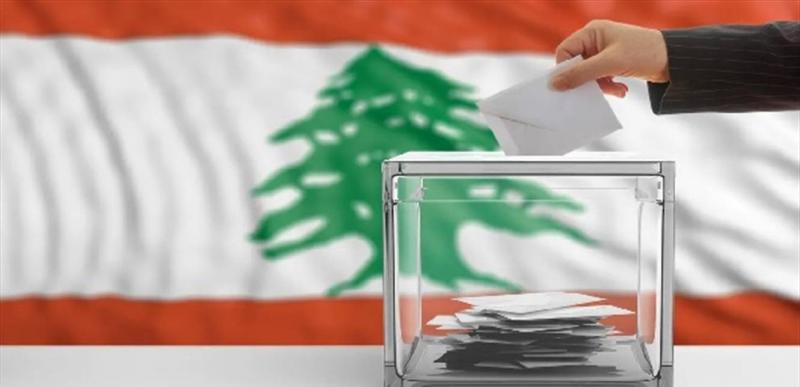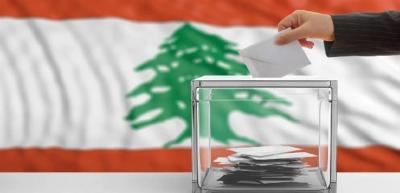The newspaper Al-Jumhuriya published an article by journalist Johnny Mounir stating: "Several oddities accompany the upcoming parliamentary elections, the most notable being the ongoing skepticism about their occurrence for more than a year now. Although there are only a few days left until the closure of the candidacy process, various scenarios about the possibility of postponing the awaited electoral event are raised daily. The latest of these scenarios links the ongoing war in Ukraine and its potential repercussions on the region, as well as the focus of Europeans and Americans on its developments, which could ease the current international pressure for holding the elections, thereby automatically allowing for their postponement given the implicit lack of desire from most Lebanese parties to conduct them under these circumstances, at least.
However, this negative outlook doesn’t seem realistic, especially since Europe, backed by Washington, makes a clear distinction between the war in Ukraine and Middle Eastern issues, including Lebanon. Evidence of this is that despite the intensity of the war in Ukraine, it seems to be contained within certain limits, indicating that it will not spiral out of control despite all the flames, destruction, and bloodshed. Furthermore, the ongoing conflict has not similarly impacted the negotiations regarding the Iranian nuclear issue, of which Russia is a member of the negotiating team. Contrary to some fears that the war in Ukraine might 'jeopardize' the nuclear agreement, concerned diplomatic circles indicated that the agreement is on the verge of being finalized, although Iran sought during the last round to delay progress for further gains given the current circumstances. This means that the conditions of the game in Lebanon also remain unchanged, and foreign delegations visiting Beirut continue to emphasize the necessity of conducting these elections on time.
Before the situation in Ukraine, the prevailing concerns were around security, leading many to believe this would undermine the electoral process. This impression was exacerbated by the Interior Minister's announcement of foiling a plot by ISIS to execute three simultaneous suicide bombings in the southern suburb of Beirut. In truth, the operation was still in the preparatory phase, or more precisely, in the stage of 'intentions' rather than execution. Its revelation represents a security achievement, although the timing may be related to the internal Lebanese conflict, particularly the call from the General Director of Internal Security Forces, Major General Imad Othman, for an investigation. Despite the difficult living and economic conditions faced by security personnel, they remain highly prepared to monitor terrorist organizations.
In Ain al-Hilweh camp, which hosts secret leadership offices for both Al-Qaeda and ISIS, among other terrorist groups, security forces maintain constant oversight, alongside the security cordon imposed by the Lebanese army around the camp. So far, security pursuits have indicated no significant external plans to destabilize the Lebanese landscape comparable to what occurred in 2015; rather, the terrorist organization aims to entice Lebanese youth to fight in Iraq and Syria, rather than ignite Lebanon into chaos and persistent bombings. Thus far, ISIS has managed to lure about 50 young men from northern regions to participate in the fighting in Iraq. However, the Lebanese army's intelligence successfully thwarted another 20 cases, conducting investigations with those individuals before returning them to their families after implementing necessary security measures while keeping them under constant monitoring. It was found that the terrorist organization lures youths by providing $2,500 each to cover their expenses for traveling across borders to join ISIS camps.
On one hand, this amount is tempting, and on the other, the acute political conflict in Lebanon, which sometimes takes on a sectarian nature, drives some youngsters into temptation. However, the supportive factor is that the entire northern environment has become opposed to any such "drift." Northern families, alongside mosque imams, are working to raise awareness among youths despite the difficult living conditions. Therefore, the Lebanese landscape does not currently face the risk of igniting again. However, this does not rule out the possibility of an operation carried out by an 'individual wolf' or 'infiltrator' acting unilaterally. Yet, even if such an incident occurs, it will certainly not impact the decision to carry out the electoral process.
There is another matter that must be taken into account, which concerns the potential for a significant and sudden drop in the value of the Lebanese currency. The fluctuations in the exchange rate of the US dollar, whether rising or falling, are not clear and do not follow any known scientific logic, suggesting that a sharp increase in the value of the green currency is a likely occurrence at any moment. This could again push people into the streets, leading to chaos that no one could control. This scenario is acknowledged by official Lebanese authorities. Some regard this probability as stemming from the ongoing conflict between President Michel Aoun and the Governor of the Central Bank, Riad Salameh, which nearly led to Salameh's arrest based on a warrant from the prosecutor of Mount Lebanon, Judge Ghada Aoun.
While opponents of President Aoun believe this step is aimed at arranging the election campaign for the 'Free Patriotic Movement' and raising it as an electoral slogan, Aoun seeks to create suitable conditions to appoint a replacement for Salameh. However, the proposed names have not gained the required consensus, despite current focus on the name of former minister Jihad Azour.
Meanwhile, Salameh is careful in his movements; sometimes he sleeps at the Central Bank premises or carefully studies the routes he travels. In summary, there do not appear to be any real or significant obstacles to completing the electoral process. The persistent promotion of the possibility of delaying elections may aim to weaken the determination of those considering candidacy, thus reducing competition, which would subsequently lower voter turnout. This would enhance the chances of the political class’ lists, as high participation would diminish the prospects of the ruling candidates. A prominent diplomat remarked to his visitors that there are no signs indicating significant changes in the upcoming parliament.
The actual problem, which no one has noticed, is that if voter turnout is weak, especially among the Sunni and Christian constituencies, it would result in the election of representatives who do not genuinely represent more than ten percent of Christians and Sunnis. This would create a parliament that, for a large part, lacks legitimate representation. In the 2018 elections, this representation level was around twenty percent, contributing to the explosion on the streets on October 17. People will find themselves disconnected from and unrepresented in authority. Today, if things head in this direction, will a parliament lacking more than ten percent of popular representation be able to accompany the people through the challenging path of economic reform and the complex political restructuring? Likely not. Here lies the true problem and actual obstacle in the upcoming phase, especially since the members of this political class have never cared and will not care for anything beyond their narrow private interests rather than the common good; history is a clear witness."




